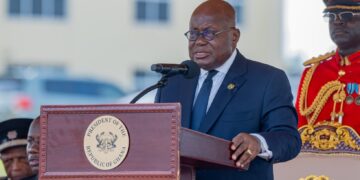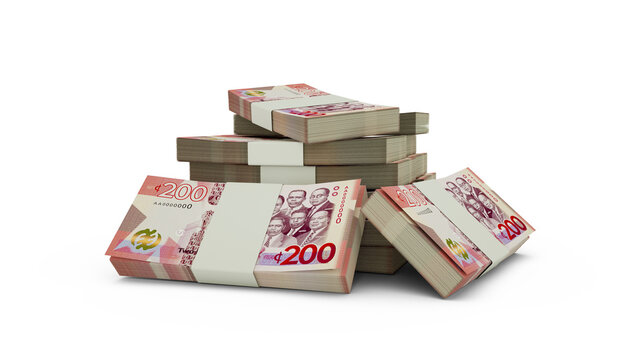Ghana’s cedi, which is now the third worst-performing currency in Africa, might still be in for a rough ride.
The currency, which has already dropped more than 7% vs the dollar, is expected to weaken further, according to analysts, even with the $3 billion rescue provided by the IMF in the wake of the nation’s 2022 default.
Ghana is still working to reach an agreement with Eurobond investors, despite having won workouts with both its official and domestic creditors. Furthermore, even if the nation’s foreign reserves increased to $5.9 billion in December 2023, a 10-month high, they are still insufficient to sustain the value of the currency.
“The cedi would have dropped even further if Ghana had not stopped making payments on its foreign debt, according to Courage Boti, an economist at GCB Capital Ltd. in Accra. “Those are weak reserve levels that no one expects to support currency stability,” Boti said.
“In addition, there is a significant risk of pressure on foreign exchange demand due to this year’s elections,” he stated. December is when the new president is supposed to be elected.
In December 2022, Ghana declared an end to its international obligations due to the aftermath of the Covid-19 outbreak and the shock to global markets caused by Russia’s invasion of Ukraine. It achieved a preliminary agreement with bilateral lenders in January to restructure $5.4 billion in loans, and it has finished revamping its domestic bond market. It continues to negotiate with investors of $13 billion in Eurobonds.
Once the debt restructuring is finished, foreign investors may be more receptive to investments in Ghana; but, political risk in the run-up to the election will warrant ongoing caution, according to Mr. Boti.
The second-largest cocoa producer in the world depends on imports for almost everything, including heavy machinery and toothpicks, and these imports are predicted to rise in the lead-up to the election. The government forecasts faster GDP growth this year, at 2.8%, up from 2.3% in the previous year.
“Rebuilding foreign reserves is one of the central bank’s policy goals under the IMF program, according to Databank Group analyst Kweku Arkoh-Koomson. He predicted that the cedi would drop to 13.7% to the dollar by the end of the year, saying that “this means the Bank of Ghana will not necessarily intervene on the market the way it should but just to smoothen volatilities.”
According to Bloomberg statistics, at 10:41 a.m. in Accra,the cedi was practically constant at GH¢12.9267 per dollar.














